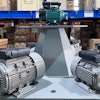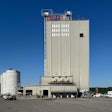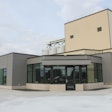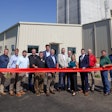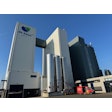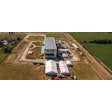
Do you know when trucks hauling grain will be arriving at the testing house, so you can have a team waiting for it? Can you tell that your feed trailer has delivered its load on time and to the correct farm? Do you have maintenance records on every vehicle in the company fleet so you never miss an oil change? If you answered “no” to any of these questions, you may want to look into a robust fleet management software program.
Every small act of time saving and improved record keeping adds to a business’s bottom line and improves customer relationships. For example, many companies’ fleet logistics still involve many personnel hours at great cost, according to Dayton Jagiela, solution architect with Alpharetta, GA-based Cultura Technologies. Cultura’s oneFreight™ is a transportation management system that aids in the dispatching of trucks, tracking freight only movements, simplifies scale operations and billing by reducing manual data entry related to fleets all in one solution.
“Today, logistics is done very manually for the most part,” explains Jagiela. “It’s done on the phone, and on scrap paper and with an Excel document. It becomes a cluster pretty quickly and can become unorganized. Imagine if you’re working with 20 different vendors to run your freight business, moving the grain around on a load-by-load basis. Trying to account for every single load that you’ve moved — we’re talking about thousands of loads, either per month or per quarter — you pay a lot in man-hours to do that accurately.”
Casey McCullough, vice president of Razor Tracking, explained how fleet logistics systems can relieve this situation. For example, Razor Tracking, a company based in Hope, ND, provides a GPS fleet tracking solution that gives up-to-the-minute information on vehicle location and history.
“The biggest thing we’re doing is increasing efficiencies, eliminating phone calls and letting you see your vehicles from anywhere,” McCullough said.
Think back to the last time your staff didn’t know when a truck was coming in, had an argument with a customer about a shipment, lost a truck ticket, or in some cases, lost an entire truck. Now, think about how a logistics system could help the company keep organized, control man-hours and save money. What is holding you back?
Training with new technology
In 2017 Apple is celebrating the 10th anniversary of its iPhone, which means if you haven’t looked into a facet of your business in the last 10 years, you have not looked at it through the eyes of a post-smartphone world. The small devices in our pockets give facility managers the ability to run everything — including fleet logistics.
“We have a couple companies that are using nothing but our mobile app,” said Ian Beaton, sales executive, Razor Tracking. “Their managers are always on the go, back and forth, and they use the mobile app to track everything.’”
If new technology can improve customer relations, the efficiency of your staff and help the bottom line, why not upgrade?
“Sometimes people are just overwhelmed by it,” explained Sherry Drutman, vice president North American sales, OpenLink Agribusiness Solutions Group, Uniondale, NY. “They will say ‘George has always done this by hand, George has been here for years. Maybe when he retires we’ll get something.’”
The idea of training staff on a new program may be a greater roadblock than the actual fiscal cost. But companies need to be ready before adversity strikes, and with antiquated systems, a facility is vulnerable to problems.
OpenLink’s dbcSMARTsoft is marketed as a complete trading, risk management, merchandising and accounting solution. OpenLink offers fleet logistics as part of a larger, more robust package, but that can be more than a company needs or wants.
Razor Tracking, Cultura Technologies and OpenLink all offer fleet logistics options for those in the feed manufacturing and grain handling industries. They know the industry and its training challenges. Not only do they work hard to make their systems as user-friendly as possible, but they know best how to train any crew. So, if there is a financial or customer advantage, make the jump before the competition does.
Customer satisfaction
Businesses can’t afford to upset customers, especially in grain handling and feed manufacturing, where an upset customer is often someone you’ve worked with for years and because of geography, new customers are not always easy to come by. Customer relations are important to your company, and they are at risk every moment your fleet logistics data is not secure in a centralized, networked system.
“The manual processes — from a dispatching perspective — are the result of a lot of institutional knowledge, so that dispatcher has a whole rhythm in his head all day long,” Jagiela explained. “If he gets sick or if he’s not there, somebody on that team has to step up and perform those functions. The relevant information needs to be communicated to vendors and entered into the accounting system easily.”
When that person steps up, the information needs to be available and in a universal format that they can understand, not notes on scraps of paper. A facility should be able to run without any individual employee on any day of the year.
“There is an efficiency in having everything in one place,” Drutman explained. “Unlike personal spreadsheets, with dbcSMARTsoft, the data can be shared and everyone knows what is going on at all times.”
Fleet logistics can help cover if an important person is unavailable during a crucial time, but it will also improve the day-to-day interactions between you and your customers. One of the easiest ways to do this is through scheduling with oneFreight™ integrated with AGRIS™, so you know when shipments are coming in. Another useful program is GEO Fences by Razor Tracking, which is a set GPS point on a map that will alert you when your vehicle goes through it. With scheduling and GEO fences, a facility or co-op can reduce wait times for their customers and get the most out of equipment.
“You’re building a streamlined communication process with vendors that you have relationships with,” said Jagiela.
Big data
Go back to that exercise from the beginning and think about the last time your current fleet logistics system let you down. More than likely it was a human error, one that could have been avoided and it probably hurt your bottom line.
“The benefits of using our system for dispatching trucks is the guesswork is removed,” said Jagiela. “All those contract details associated with the truck are linked to unique load numbers we generate, and those load numbers are sent to the oneWeigh™ scale system. The scale operator selects one ofthe load numbers; it pulls in all the contract details into the scale so that they don’t have to choose a customer name or contract number. It’s all just auto-populated, so they never make a mistake.”
With all of your fleet’s data being put into one place, the team can look at the entire fleet operation, see what is working, what is not and make changes. Beaton explained the power and benefit to having all that data in an easily digestible format.
“Once everything is linked to the system and tracked, companies start to see what machines are traveling too far, not traveling enough, what vehicles are working more than they’re driving and what delivery people are going out of their way. With a top-down view of the company, managers can get a 25% to 30% efficiency increase because before they knew what they were doing, but now they can see what they know. They now have the ability to go back in time so they can pull up maps from last spring or last season, last week or last month. They can get an overview of what they did, what they need to improve.”
This organization of data can also help you track the mundane things that seem insignificant at the moment but can add up to huge hits on the bottom line — like vehicle maintenance, which can become a problem if overlooked.
“Co-ops that are using it are seeing a maintenance cost decrease because they’re able to plan ahead and see exactly what maintenance is needed on each vehicle based on mileage or time,” Beaton explained.
Saving money is important no matter what, but the old adage, “a penny saved is a penny earned,” becomes truly relevant in a down economy. As managers, pinching pennies often comes down to you, and one way to do it is by updating the technology that runs your operation. If you haven’t thought about updating your fleet logistics system in the past few years, take a look at today’s offerings. The advantages may surprise you.
.jpg?auto=format%2Ccompress&crop=faces&fit=crop&h=48&q=70&w=48)
